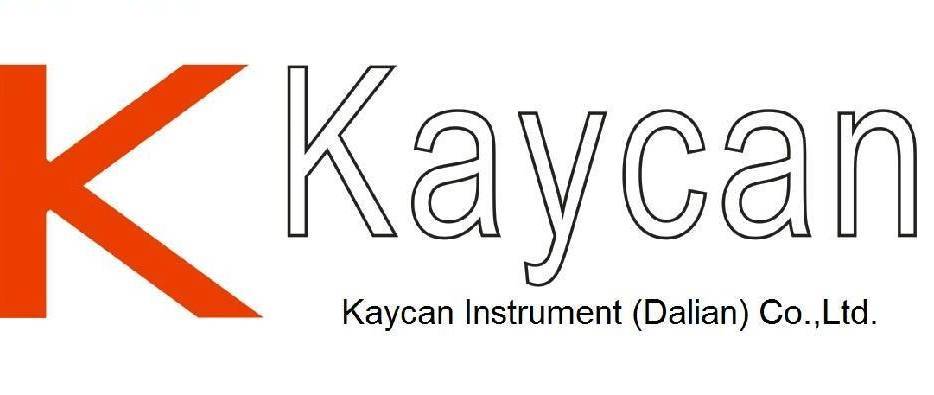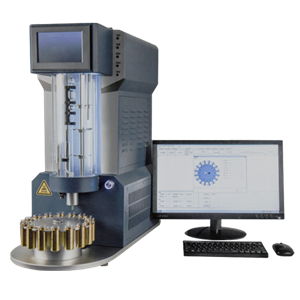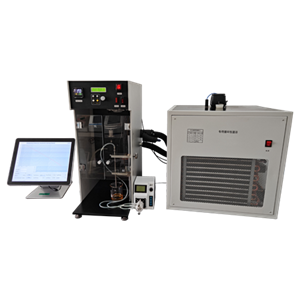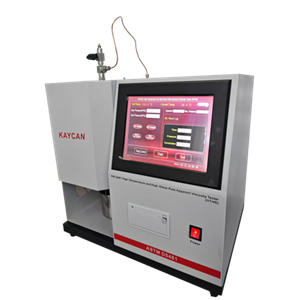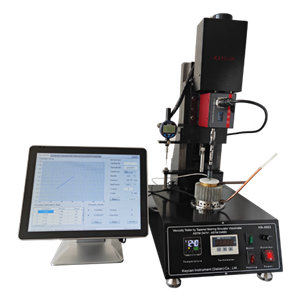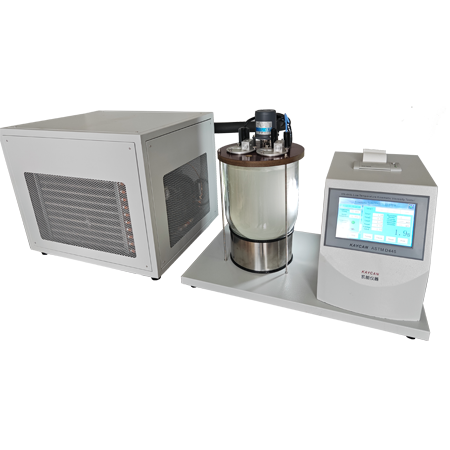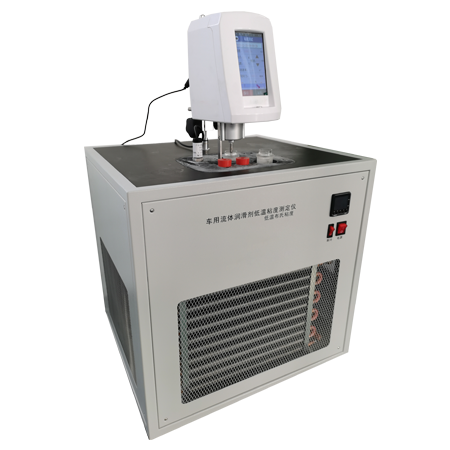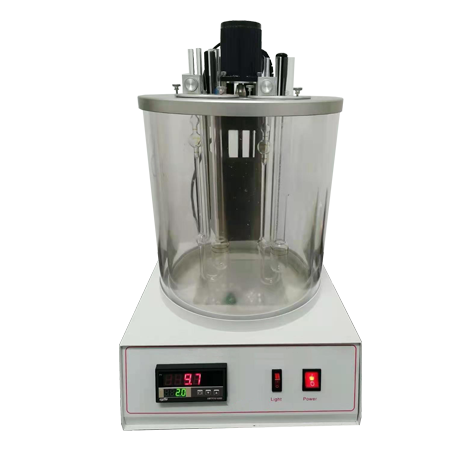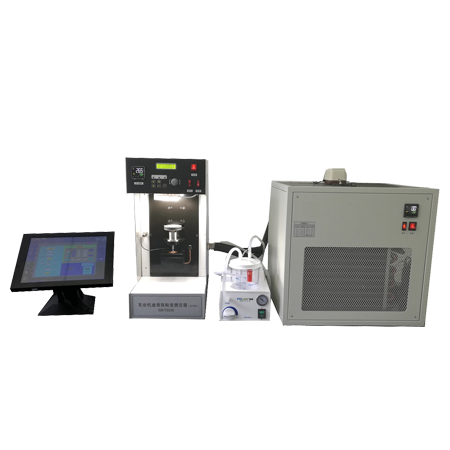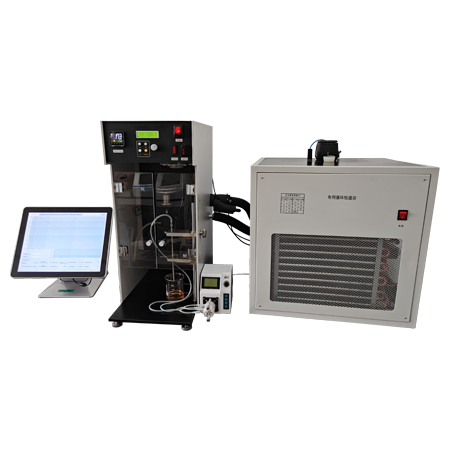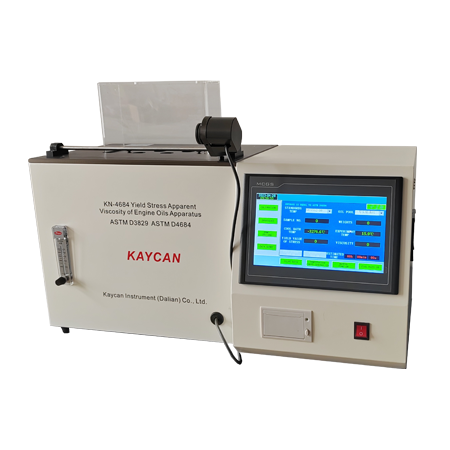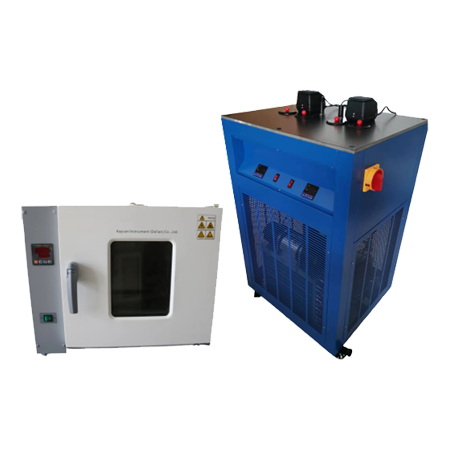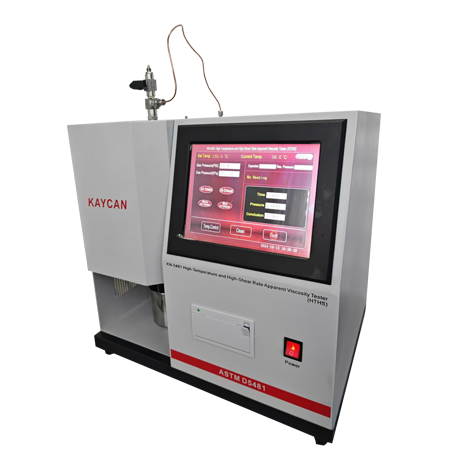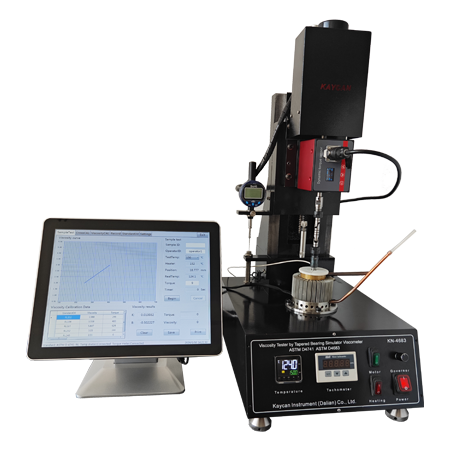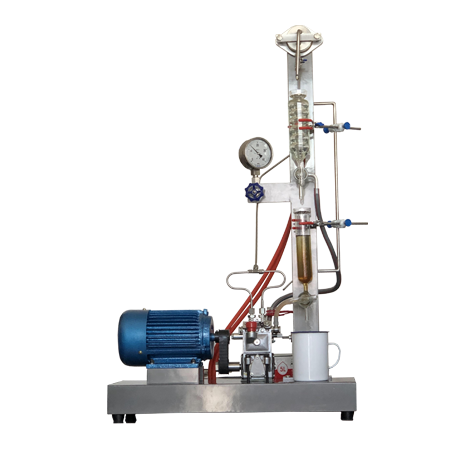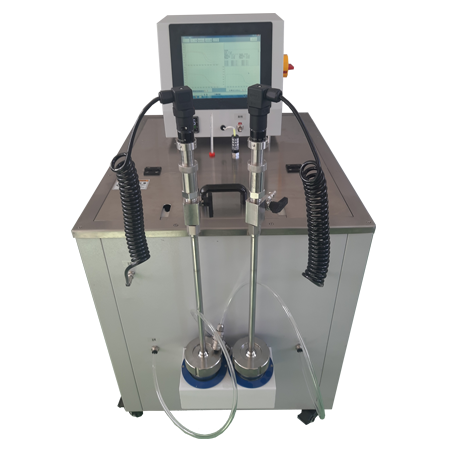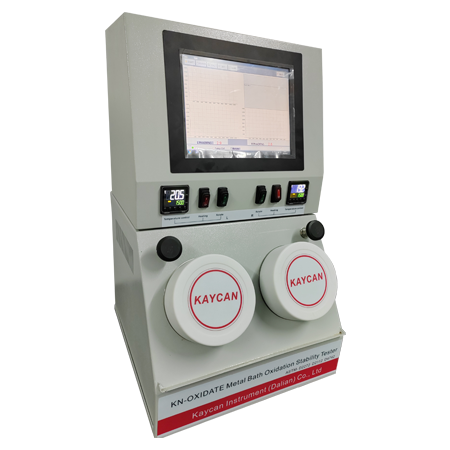-
ASTM D445 Low Temperature Kinematic Viscosity Tester
Many petroleum products, and some non-petroleum materials, are used as lubricants, and the correct operation of the equipment depends upon the appropriate viscosity of the liquid being used. In addition, the viscosity of many petroleum fuels is important for the estimation of optimum storage, handling, and operational conditions. Thus, the accurate determination of viscosity is essential to many product specifications.
Send Email Details -
ASTM D2983 Low Temperature Brookfield Viscometer
The low-temperature, low-shear-rate viscosity of automatic transmission fluids, gear oils, torque and tractor fluids, and industrial and automotive hydraulic oils are of considerable importance to the proper operation of many mechanical devices. Measurement of the viscometric properties of these oils and fluids at low temperatures is often used to specify their acceptance for service. This test method is used in a number of specifications.
Send Email Details -
ASTM D4603 Inherent Viscosity Of PET By Glass Capillary Viscometer
The inherent viscosity is determined by measuring the flow time of a solution of known polymer concentration and the flow time of the pure solvent in a capillary viscometer at a fixed temperature. The inherent viscosity value is calculated from the flow time values
Send Email Details -
ASTM D5293 Apparent Viscosity By Cold Cranking Simulator CCS
The CCS apparent viscosity of automotive engine oils correlates with low temperature engine cranking. CCS apparent viscosity is not suitable for predicting low temperature flow to the engine oil pump and oil distribution system. Engine cranking data were measured by the Coordinating Research CouncilThe measurement of the cranking viscosity of base stocks is typically done to determine their suitability for use in engine oil formulations. A significant number of the calibration oils for this met
Send Email Details -
ASTM D5293 Automatic Apparent Viscosity By Cold Cranking Simulator CCS
The CCS apparent viscosity of automotive engine oils correlates with low temperature engine cranking. CCS apparent viscosity is not suitable for predicting low temperature flow to the engine oil pump and oil distribution system. Engine cranking data were measured by the Coordinating Research CouncilThe measurement of the cranking viscosity of base stocks is typically done to determine their suitability for use in engine oil formulations. A significant number of the calibration oils for this met
Send Email Details -
ASTM D4684 Yield Stress And Apparent Viscosity Of Engine Oils
An engine oil sample is held at 80°C and then cooled at a programmed cooling rate to a final test temperature and held for a specified time period. At the end of this period, a series of increasing low torques are applied to the rotor shaft until rotation occurs to determine the yield stress, if any is exhibited. A higher torque is then applied to determine the apparent viscosity of the sample.
Send Email Details -
ASTM D6922 Apparatus for Homogeneity and Miscibility in Automotive Engine Oils
KN-6922 Apparatus for Homogeneity and Miscibility in Automotive Engine Oils conforms to ASTM D6922 Standard Test Method for Determination of Homogeneity and Automotive Engine Oils. It is important that engine oils from different manufactures be homogeneous and miscible with each other, because operation of automotive engines often do not have prior knowledge of the manufacturer of the oil that is currently used in their application, and engine failure can occur if oils are combined that do not stay homogeneous and function properly.
Send Email Details -
ASTM D5481 Apparent Viscosity At High Temperature And High Shear Rate By Multicell Capillary Viscometer HTHS
High-Temperature and High-Shear Rate Apparent Viscosity Tester (HTHS) covers the laboratory determination of high-temperature high-shear (HTHS) viscosity of engine oil at a temperature of 150℃ using a multicell capillary viscometer containing pressure, temperature, and timing instrumentation. The shear rate for this test method corresponds to an apparent shear rate at the wall of 1.4 million reciprocal seconds (1.4 3 106s-1).This shear rate has been found to decrease the discrepancy between this
Send Email Details -
Hot
ASTM D4683 Viscosity At High Temperature And High Shear Rate By Tapered Plug Viscometer
KN-4683 Apparatus for Viscosity by TBS conforms to ASTM D4683 Standard Test Method for Measuring Viscosity of New and Used Engine Oils at High Shear Rate and High Temperature by Tapered Bearing Simulator Viscometer at 150 °C and ASTM D4741 Standard Test Method for Measuring Viscosity at High Temperature and High Shear Rate by Tapered-Plug Viscometer. The ASTM D4683 covers the laboratory determination of the viscosity of engine oils at 150℃ and 1.0·106s-1 using a viscometer having a slightly tape
Send Email Details -
ASTM D6278 Shear Stability Of Polymer Containing Fluids
This test evaluates the percent viscosity loss for polymer-containing fluids resulting from polymer degradation in the high shear nozzle device. Thermal or oxidative effects are minimized.
Send Email Details -
Oxidation Stability Bath, RPVOT / RBOT / TFOUT
The estimate of oxidation stability is useful in controlling the continuity of this property for batch acceptance of production lots having the same operation. It is not intended that this test method be a substitute for Test Method D943 or be used to compare the service lives of new oils of different compositions.
Send Email Details -
Hot
Automatic Oxidation Stability Bath, RPVOT / RBOT / TFOUT
KN-OXIDATE Metal Bath Oxidation Stability Tester conforms to ASTM D2112 Standard Test Method for Oxidation Stability of Inhibited Mineral Insulating Oil by Pressure Vessel, ASTM D2272 Standard Test Method for Oxidation Stability of Steam Turbine Oils by Rotating Pressure Vessel, ASTM D4742 Standard Test Method for Oxidation Stability of Gasoline Automotive Engine Oils by Thin-Film Oxygen Uptake (TFOUT) and ASTM D942 Standard Test Method for Oxidation Stability of Lubricating Greases by the Oxygen Pressure Vessel Method. It determines oxidation stability of new and in-service turbine oils and other industrial oils; it is field-proven non-liquid RPVOT (formerly known as RBOT) instrument in the industry used for evaluating oxidation resistance over a broad range of oils and lubricants. Widely used for base oil comparisons and as a condition monitoring tool for turbine oils.
Send Email Details
